More pets are traveling more! According to the 2023-2024 APPA National Pet Owners Survey, 66% of U.S. households own a pet, which equates to 86.9 million households. And a 2022 survey by Hilton showed that 55% of respondents who owned pets planned to travel with their furry friend in the next year. With pet travel becoming more common, states are responding with pet car restraint laws to keep everyone safe.
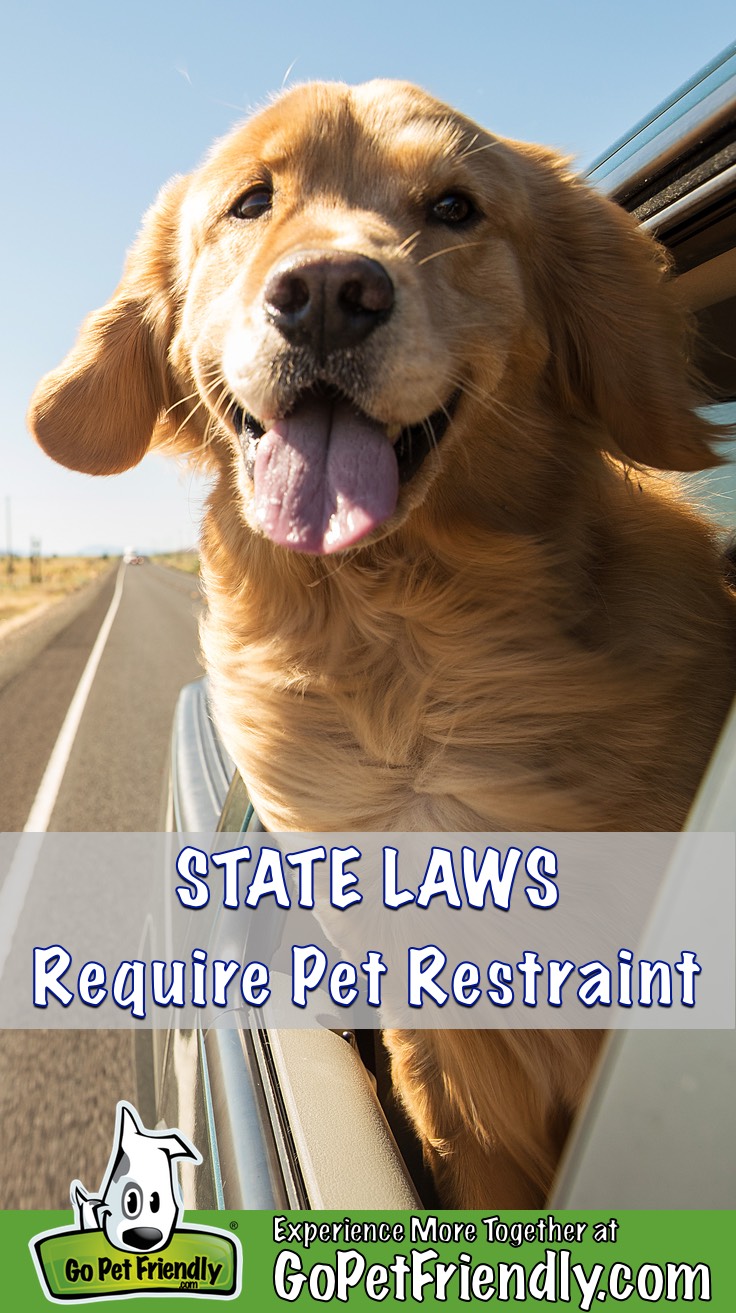
Why We Need Pet Car Restraint Laws
Studies have shown that less than 20% of pet owners buckle up their furry companions when they travel. That translates into tens of millions of pets riding unrestrained in vehicles!
Not only is this potentially life threatening for the pets, it’s dangerous for their families — and everyone else on the road.
Consider that, in a collision at 50 miles per hour, an unrestrained 10-pound dog would impact the dash, seat, or other passenger with about 500 pounds of force. That’s more than enough to do serious damage to a human and the dog.
Now, just imagine the injuries a dog like Myles, who weighs 50 pounds, could inflict in an accident!
READ MORE ⇒ Best Crash-Tested Dog Harnesses For The Car

Possible Denial Of Insurance Claim
Beyond possible injuries and legal ramifications, there are additional consequences to consider when traveling with an unsecured pet. If you have an accident, and you did something that contributed to it, your insurance company might deny your claim.
Receiving a citation related to pet car restraint laws or distracted driver laws indicates you’re partially at fault. If you submit a claim to your insurance company, they’ll be provided with that information. And if your claim is denied, the situation could be financially devastating, in addition to the physical and emotional trauma.
READ MORE ⇒ Crash-Tested Crates and Carriers To Keep Pets Safe
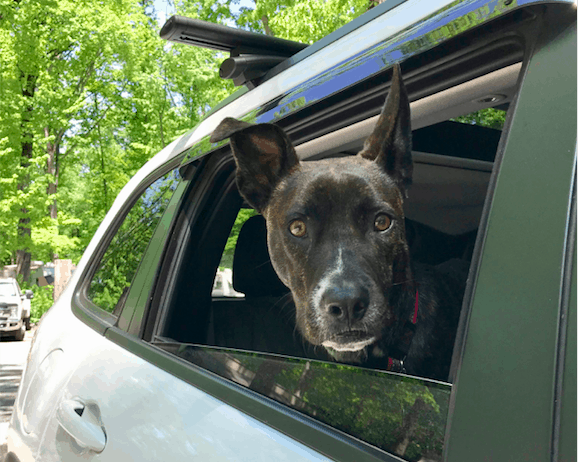
States That Require Pets To Be Restrained In Vehicles
Currently, no federal law requires pets to be restrained inside a vehicle, and of the 50 states, only three have laws that specifically require dogs to buckle up in the car—Rhode Island, Hawaii, and New Jersey.
Hawaii
Hawaii’s pet car restraint law states that no person shall hold in his or her lap or allow to be in the driver’s immediate area any animal that interferes with the “driver’s control over the driving mechanism of the vehicle.” Fines are $97 dollars for driving with a dog in your lap, and $57 for having a pet loose in a moving vehicle.
New Jersey
In New Jersey, pets in moving vehicles must ride in a carrier or wear a seat belt. Failure to comply can result in a fine of $250 to $1000.
Rhode Island
Rhode Island’s pet car restraint law requires pets to be under the physical control of a person other than the driver, or be restrained by crates, harnesses, seat belts. Violations of this law carry fines up to $200.
READ MORE ⇒ Is It Illegal to Leave Pets Alone in a Vehicle?
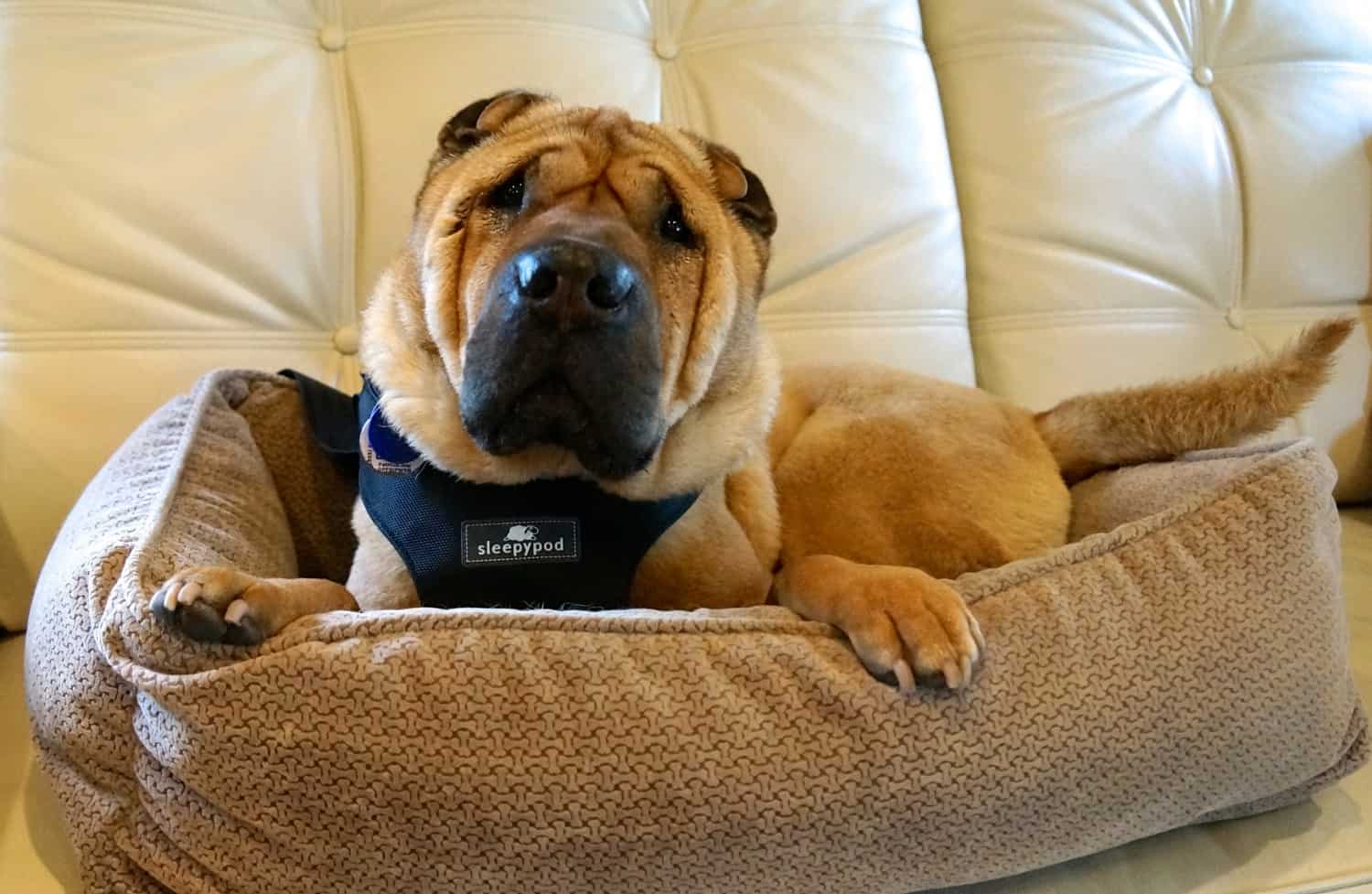
Distracted Driver Laws
Even if you’re not traveling where pet restraint laws apply, you could still receive a ticket for distracted driving if your pup is unsecured and you are pulled over or in an accident. The following states have enacted laws that could provide consequences for transporting unrestrained pets.
Arizona
Arizona drivers can be charged under distracted driving laws if they drive with an animal in their lap, or if a police officer determines the transportation method creates an unsafe situation.
Connecticut
Connecticut’s drivers can be charged under distracted driving laws if they drive with a pet in their lap.
Iowa
In Iowa, driving with an obstructed view is an operating violation that can carry a fine. And it’s reasonable to assume that having a pet on your lap could obstruct your view.
Maine
Drivers in Maine risk violating distracted-driver laws if they drive with a pet in their lap.
Massachusetts
In Massachusetts, it is unlawful for drivers to allow anything on or in the vehicle that might interfere with or impede the proper operation of the vehicle. Certainly, having a pet on your lap could violate this law.
South Carolina
In South Carolina, drivers risk a ticket for negligence or another offense when driving with a pet in their lap, if an officer considers the situation unsafe.
Washington
Washington’s distracted driver statute doesn’t specifically mention unrestrained pets. However, lawmakers and police officers have mentioned having a loose pet or one riding on the driver’s lap as a potential distraction — one that may be considered a secondary violation if a driver is pulled over for another reason — but would not be enough to initiate a traffic stop.
Washington D.C.
Washington D.C.’s distracted driving law specifically mentions “interacting with pets” as a distraction that can result in a moving violation. The fine for a first offense is $100.
Wisconsin
In Wisconsin, driving with a pet on your lap violates the inattentive driving law.
READ MORE ⇒ How To Take A Cross-Country Road Trip With Pets
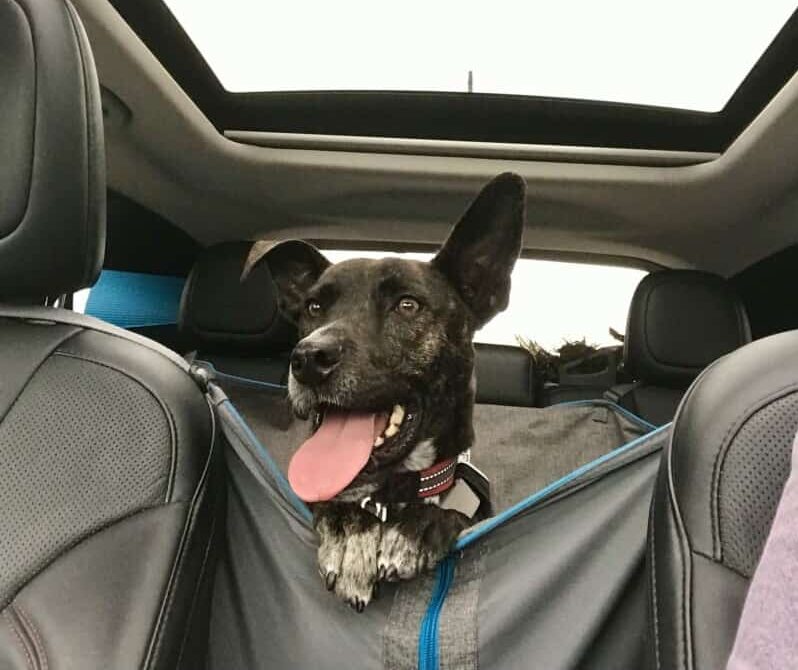
Ambiguous State Laws Dealing With Pet Transportation
Finally, there are a number of states with laws that could be applied to unrestrained pets in vehicles.
Alabama
Alabama’s animal cruelty laws could be invoked if a police officer determines the manner of transporting a pet violates animal welfare laws or endangers the pet.
Mississippi
In Mississippi it’s a misdemeanor to “carry or confine a pet in a cruel manner.” Extending this to transporting a pet without proper attention to safety is possible.
Ohio
Ohio’s current cruelty to animals laws state that no person shall carry or convey an animal in a cruel or inhumane manner.
Oklahoma
Oklahoma’s cruelty to animals statutes state that it is a misdemeanor to carry an animal in a vehicle in a cruel or inhumane manner.
Tennessee
Tennessee’s cruelty to animals statues make it illegal to transport or confine an animal in a cruel manner.
Texas
The disorderly conduct laws in Texas state that it is an offense to transport or confine an animal in a cruel manner.
Utah
Under Utah’s anti-cruelty provisions, it is illegal to transport or confine an animal in a cruel manner.
Vermont
Vermont’s animal health regulations and animal transportation prohibit transporting any animal in a cruel or inhumane manner.
Virginia
Virginia’s laws require that owners provide adequate care for companion animals during transportation.
Washington
Washington’s animal cruelty laws make it a misdemeanor to transport animals in a way that would pose a risk to the animal or public safety.
Wisconsin
Wisconsin’s crimes against animals statutes make it illegal to transport an animal in or on a vehicle in a cruel manner.
State Laws Regulating Transportation Of Pets in Open-Bed Trucks
Transporting a pet in the open bed of a truck is a disaster waiting to happen. Not only can pets fall out and get injured or worse, but they have absolutely no protection in a collision.
On top of those dangers, exposure to the weather can lead to heat exhaustion or hypothermia. And, in the sun, the floor can become hot enough to burn pet paws.
To help mitigate some of these dangers, the following states make carrying unsecured animals in an open truck bed illegal:
- Connecticut
- Maine
- Massachusetts
- Minnesota
- New Hampshire
- Oregon
- Washington
Making sure you all come home together is the most important part of pet travel. We hope that understanding the state pet car restraint laws encourages you to buckle up your pets when you hit the road!
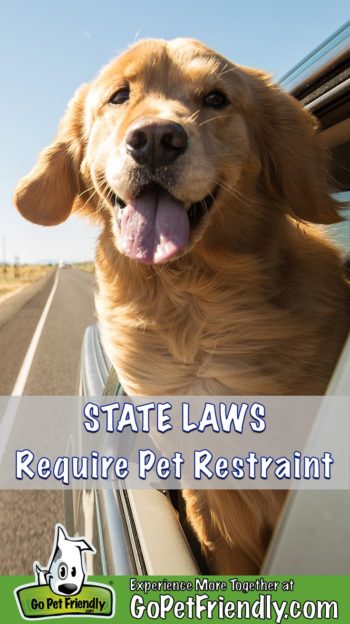
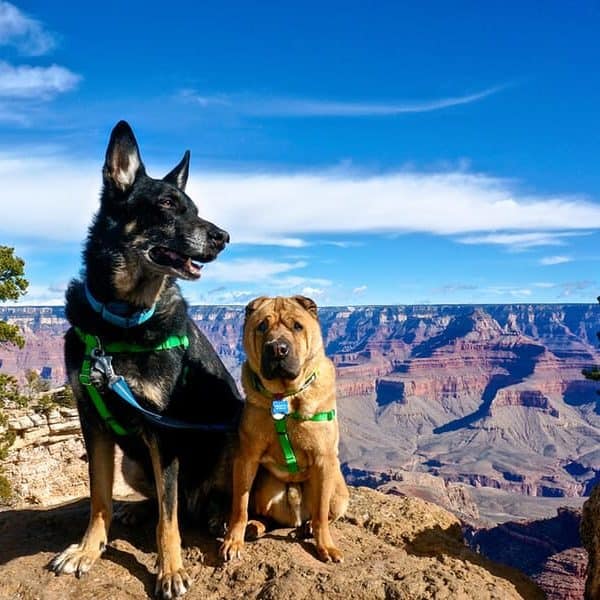



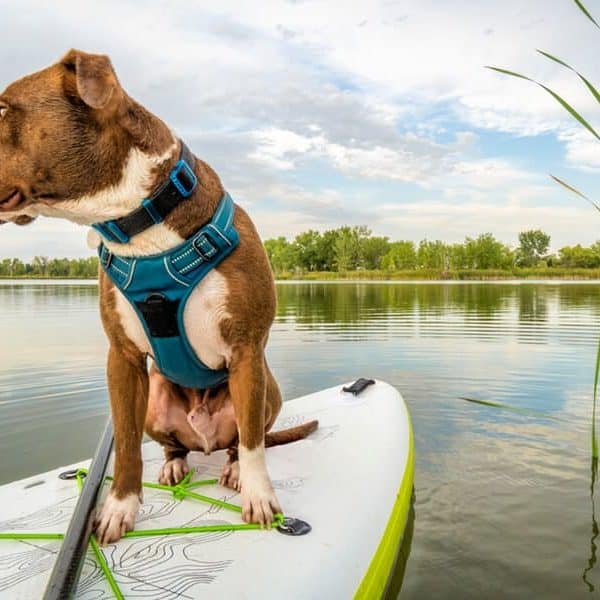





Excellent reminder of the importance of keeping our fur family and our human family safe. Thank you!